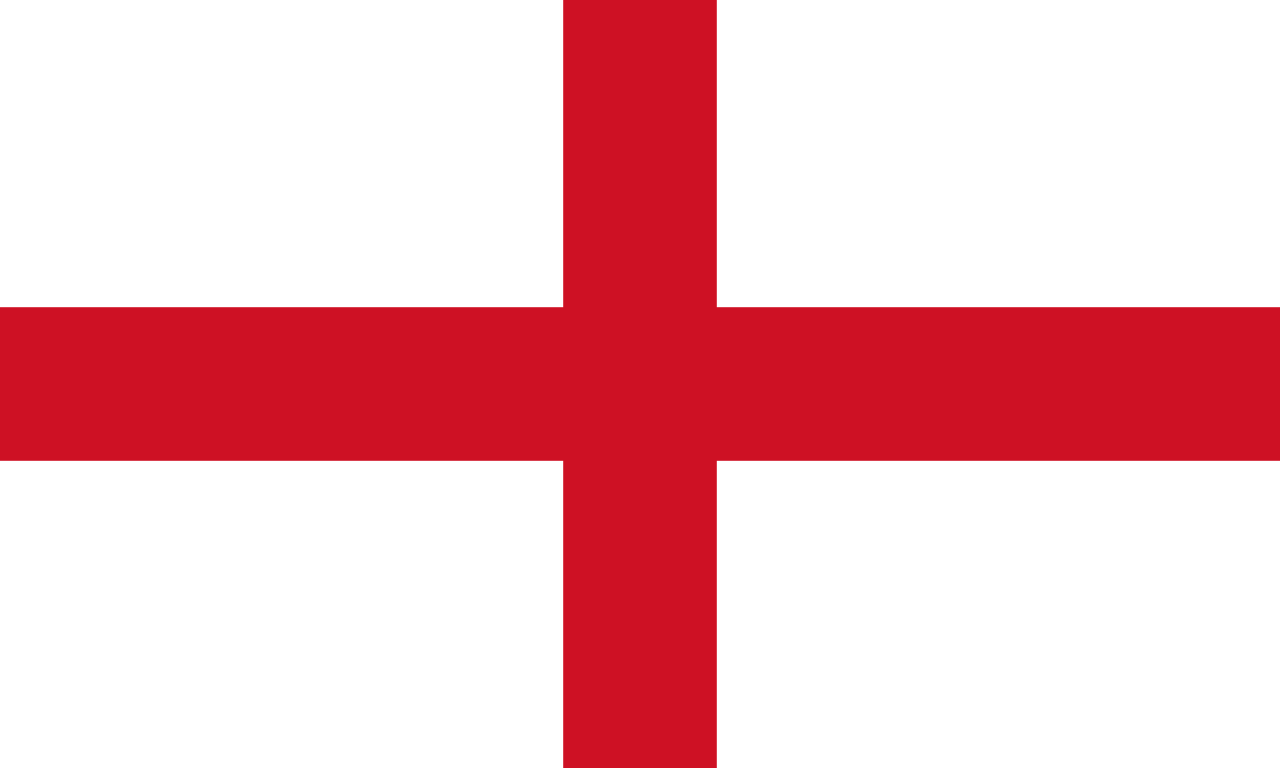The English Civil War, as are most
civil wars, is really complicated and easily arouse opposing viewpoints and
heated rhetoric. Actually three separate wars (1642-1646, 1648-1649, 1649-51),
and involving King Charles II fighting against Parliament, while also leading
England in a war against Scotland, which he was also the monarch of, and a lot
of betrayal’s, backstabbing, beheading, defections, bloody battles, disease,
religious intolerance, sieges, massacres, Short, Long and Rump Parliaments, and
a tree. Yes, a tree.
 |
| This isn't the actual tree. But apparently it's a descendent of that tree. If you want to find out more, check the family... genealogical website. What did you think I was going to say? |
However, today I’m not going to talk
about changing the outcome of the Civil War. Parliament, also known as the
“Roundheads,” defeated King Charles I and his supporters known as the
“Cavaliers” - and cut off his head - and drove his son, later King Charles II
out of England (with the help of that tree I mentioned), and established the
Commonwealth of England. However, the Commonwealth soon became the
“Protectorate,” with the Lord Protector Oliver Cromwell, one of the most
successful of the New Model Army general’s, becoming a de-facto military
dictator. But neither the Protectorate or the Commonwealth lasted long after
Cromwell’s death, with his son Richard being Lord Protector for only a few
months before being disposed and King Charles II being named King of England
again by 1660.
So, what if the Commonwealth was
never ended?
Point of Divergence
I’m going to have two POD’s for this
scenario. First, King Charles II dies before 1660, either while hiding in that
tree or while in exile in France. For the sake of this scenario, let’s say a
Roundhead solider looks up in the tree and finds the King, and kills him,
because otherwise it would have to be something bland, like King Charles II got
dysentery in France.
 |
| Dysentery: a painful, miserable and embarrassing way to have to go. But enough about Oregon Trail. |
Second, the Richard Cromwell lays down the
title of Lord Protector when the New Model Army refuses to support him after
Oliver’s death, and the Commonwealth is restored. It’s not clear what Oliver
Cromwell’s goals were when he made the Protectorate, if it was to be temporary
or permanent, I can’t say. But, he’s dead, so let’s say his son, who is considered
somewhat capable but unable to gain the confidence of the army that gave his
dad the power, decides to undercut the New Model Army’s power by calling a new
Parliament (later to be called the New Commonwealth Parliament), then laying
down his position to have Parliament name a new Lord Protector.
Immediate Consequences
The New Model Army is not to happy
with having lost it’s role as supporter of the Lord Protector. This military
force, one of the first professional and standing armies to be maintained in
English history, was known for it’s discipline, devout Puritan beliefs, and
it’s separation from politics and religion, with none of the members being
allowed to sit in the House of Commons or House of Lords. It was feared that
the New Model Army may start fighting Parliament or it’s self, leading to yet
another bout of Civil War.
 |
| And not the kind where everyone is nice to each other, is polite and everyone has a good time. |
However, one of the New Model Army’s
most powerful Generals, George Monck, a former royalist turned Parliamentarian
and current Governor of Scotland, eventually announced his support to
Parliament, and whomever Parliament chose to be the next Lord Protector, which
meant a large chunk of the army would support Parliament, forcing the other
units of the New Model Army and their officer’s to also swear their support.
Three men, all Generals in the New Model Army, soon began to vie for the
office: Monck, Charles Fleetwood, and John Lambert. The New Commonwealth
Parliament overwhelmingly supported the moderate Monck, and he accepted the
office.
Lord Protector Monck, who had the
support of a majority of Parliament and a large chunk of the New Model Army,
set to work on continuing the world of Cromwell, namely in healing and
restoring England after decades of civil war. Flames of insurrection continued
in Ireland and Scotland, and there was the ever constant threat of war on the
continent. However, internal affairs dominated most of Monck’s time, who eventually
established a committee to write a new constitution for the Commonwealth.
 |
| No, not THAT constitution... |
This constitution established a
system of checks and balances for the new Commonwealth of England. Parliament,
divided between House of Commons and House of Lords, was to become the main
lawmaking body, with the power to levy taxes to support the nation, while the
Lord Protector, retaining the title Cromwell established for himself, was to
become a life long executive position. However, it could not be hereditary;
Parliament was given the power to elect the Lord Protector with at least two
thirds of both Houses supporting the choice, and by the same margin to remove
him. The Lord Protector would not have all the powers that the King of England
had, but quite a few of them: he had the power to command the army and navy,
engage in foreign policy, name members to the House of Lords, and serve as the
highest level of law in the land. In the years to follow, an independent judiciary
would be set up to exercise these powers.
Lord Protector Monck served until his
death in 1670, by which time England was a long ways toward stability and
peace. While Monck was under suspicion of being a Royalist through the entire
time, and had many unfavorable mentions of gluttony and sloth, he served England
to the best of his abilities, even leading military units in Ireland and
Scotland. Under the Parliament’s Monck called, a remarkably liberal policy of
religious liberty was enacted, as well as a minor changes to Common Law and,
though the early Puritan dominated Commonwealth passed many restrictive laws to govern how people
acted (such as the infamous banning of theaters), many of theses were repealed.
The new Commonwealth didn’t go to war
during Monck’s term as Lord Protector, instead staying on the sidelines, but secretly
supporting Protestant causes throughout Europe, including the Huguenot’s in
France and the Dutch in their fight against the Spanish. Colonization also fell
by the wayside as all resources were devoted at home to repair and rebuild the
damage of the Civil War. The Colonies in North America, namely Maryland,
Virgina, Newfoundland and the Caribbean possessions were mostly pro-Royalists, with Puritan New England
supporting Cromwell. The Commonwealth had subdued them in the 1650s after the
Civil War, but tensions were still high. The few colonial outposts in India,
under the control of the East India Company, which was created by Queen
Elizabeth I in 1600 and gained power under her successors, lost most of it’s
holdings to the Dutch, and eventually the company faded from history.
Later Consequences
In 1673, a “civil war” broke out
between the colonies when the pretender to the throne, the Duke of York, and
called King James II, arrived in Maryland after a perilous sea voyage under an
assumed name. The colonies rose in revolt, with Maryland and Virgina joining
together to become the “Kingdom of English America,” later the Kingdom of
America supporting the King against the Puritans, while New England supported
the Commonwealth. Troops from England were sent to the colonies, but with
native allies, the new Kingdom managed to defeat the New Model Army forces and
the New England colonists and establishing themselves as independent.
Eventually, by 1700, the colonies of the Commonwealth of England was mostly
confined to Bermuda, Jamaica, Bahamas and other small islands in the Caribbean
and the north-eastern Eastern Seaboard (united to form the Commonwealth of New
England), surrounded by New France and Nova Scotia (also French) to the north
and west, and New Netherlands and the Kingdom of America to the south.
Eventually New England would be given independence, though maintaining close
ties to the Commonwealth today.
 |
| And still maintaining a monopoly on beautiful autumn rural pictures. |
Stymied in North America, the
Commonwealth instead became a “northern Venice,” a major trading republic,
gaining vast wealth, power and prestige trading over the Atlantic Ocean, the
North Sea, and into the Baltic and Mediterranean. Despite the great wealth,
Puritanism remained strong in England, with Presbyterian majority Scotland and
Catholic Ireland becoming dynamic cultural and social centers of western
Europe, while England and London remained a more reserved and morose place for
decades, until Puritanism began to lose it’s grip by the 1700s. However, to
this day, England is seen as a much more prudish and sombre place than lively
Scotland and Ireland. In a reflection of the increasing power and prosperity of
Scotland and Ireland, the Commonwealth of England eventually transforms into
the Commonwealth of the British Isles, despite simmering tensions between
Catholic Ireland and Protestant England and Scotland that continue to this day.
Without a massive empire to feed it
resources or to sell goods to, the Industrial Revolution is slower to come to
England, though it still happens there first thanks to the vast wealth from
trading and plentiful iron and coal deposits. But other nations, namely France
and the Netherlands, also begins to industrialize even quicker than the
Commonwealth does.
 |
| Don't worry there! At least you won't have to work at a factory for 14 or more hours a day and be paid a fraction of the starvation wage your parent's will make |
The Commonwealth retains the
traditional English policy of “Continental watchdog,” where they don’t
intervene in affairs in Europe unless it threatens the control of the English
Channel and the North Sea. In the later 1600 and 1700s, the Commonwealth will
be engaged, in different times, in alliances and wars against the Dutch,
French, Spanish, Austrians, Prussians, Swedish and Russians, more often than
not using a highly trained and well equipped army in the New Model Army style
to fight, and winning more often than losing. However, by the mid 1700s, as
muskets become cheaper and easier to use, the New Model Army that had long been
the basis of English power falls short, and after a series of stunning defeats
to the French in 1767 while fighting in the Netherlands, the New Model Army is
finally relegated to the history books.
By the 1800s, without colonies of
note except the nominally independent New England and a few sugar islands, the
Commonwealth is increasingly marginalized in European affairs, despite a developing
industrial economy. But the Republic survives, adapting and modernizing as time
goes on; increasing suffrage, social welfare and liberal polices usually a few
years ahead of the rest of Europe, and retaining a strong navy to defend
itself, and supporting other republican and democratic movements in Europe and
abroad. By the end of the 20th century, while having fought in
devastating total wars that saw foreign invaders land in England, the
Commonwealth retains it’s traditions and history as one of the longest lasting
republics in world history.
 |
| But still with a flag that looks like a kindergarteners first time with crayons. |
Conclusion
I think an English Republic is
something that is one of the favorite ideas for an alternate historian, if for
no other reason than the fact that, except for a few brief periods like the
Commonwealth and Protectorate eras, England has had monarchs since the fall of
the Roman Empire. The history of the monarch in England was at first similar to
other nations, of how strong kings manage to expand their power against feudal
nobles to centralize power. However, by the fourteenth and fifteenth century,
this begins to change, as Parliament, at first just a group of nobles, then of
nobles and gentry, then nobles and elected gentry, steadily gains power. By the
time of Charles I and Oliver Cromwell, the clash of who really had the power,
Parliament or Crown, reached it’s conclusion, and the answer was resounding:
the Crown could not govern without Parliament, but Parliament could govern
without the Crown.
Constitutional Monarchies are all
around the world today, but the first true one was England after the tumult of
the English Civil Wars. And for a brief period of time, only ten years between
1649 and 1659, there was no monarch at all. While it wasn’t the most stable
time, nor the most peaceful, it is one of the most interesting. Had Cromwell
chosen a better successor than his son, or had the heirs to the throne been
killed, then it’s not hard to see England minus a monarch. Because it may well
have happened.
 |
| God Save the Queen. From us Alternate Historians. |

A very intriguing exploration of this POD, especially with James II coming to southern America (does that mean the college of William and Mary happens anyway?) A divided America is always fun to speculate on, as is a republican England.
ReplyDeleteBut the biggest ripple effect I see in all this is the rise of Napoleon. He comes to power toward the end of the French Revolution, prompted by that country's financial ruin due in some part to helping those pesky Americans in their fight with Britain during the Revolutionary War. If we presume in that this alternative timeline there is no American Revolution, how does that affect France's own decline into revolution? Does Louis XVI still call the estates general together for taxes but manage to get more of what he wants out of them? Does the Tennis Court Oath never happen? If none of these things happen and France is able to continue as a monarchy, does that mean the little Corsican general never takes power?
And if Napoleon never takes power, does that mean Germany never becomes a unified, sovereign nation? The implications for 19th and 20th century warfare are big. Plus, it sounds like the Dutch remain far more powerful than in our timeline.
I've always been of the feeling that the French Revolution was going to happen sooner or later. And while maybe Napoleon himself would remain an unknown Corsican soldier, maybe someone else that today we don't know of, or, if you believe in the Butterfly effect, someone that never existed would take his place.
ReplyDeleteI really like this timeline, but I have several major disagreements:
ReplyDelete- First, the colonial population was too small in 1673 to resist the New Model Army backed by New England. Additionally, Maryline also had a lot of Protestant underclass folks with pro-Commonwealth tendency. At best, there would only be a Kingdom of Virginian, which would have been insignificant.
- Second, there is nothing can stop Britain from grabbing Quebec and Atlantic Canada in this timeline, since a surviving Commonwealth, if anything, would have had an even stronger Navy than our Royal Navy. They could have easily stolen French North American colonies in Canada and the whole Great Lake region from France well before 1767.
- Third, a surviving Commonwealth would have actually industrialized faster and longer for several reasons:
+ The Puritan attempt to introduce universal education would have succeeded 200 years early (in real life, they achieved that in New England). In real life, a poor education system was a major cause of British decline post-1870.
+ Real-life New England was an early industrialization hotspot and was responsible for a lot of innovations in industrial techniques: like interchangable parts and mechanization. In our timeline, New England adopted such a system because their skilled labour was scarce. In this timeline, with closer ties, such idea could have flown after to Britain itself, especially when the Second Industrial Revolution emerged.
+ Rotten boroughs would have been abolished earlier, giving industrial districts greater representation.
+ Industrial and merchant class would have had greater involvement and influence in government policy-making in this timeline.
- Finally, the Commonwealth would have had a strong chance of integrating New England/Northeastern Seabed as a proper part of Britain with colonial people having the same rights and same treatment as homeland British people.
This comment has been removed by the author.
ReplyDeleteBesides, both France even with Alsace-Lorraine and Dutch Republic without Wallonia would not have been able to industrialize first, because both severely lacked coal. And as I mentioned above, New England also industrialized very early in real histoty despite not having a vast network of colonies.
ReplyDeleteI wish I came across this article earlier. Overall, it is still a very good one, even though I disagree with it.